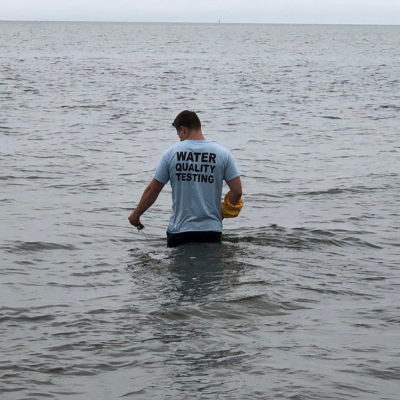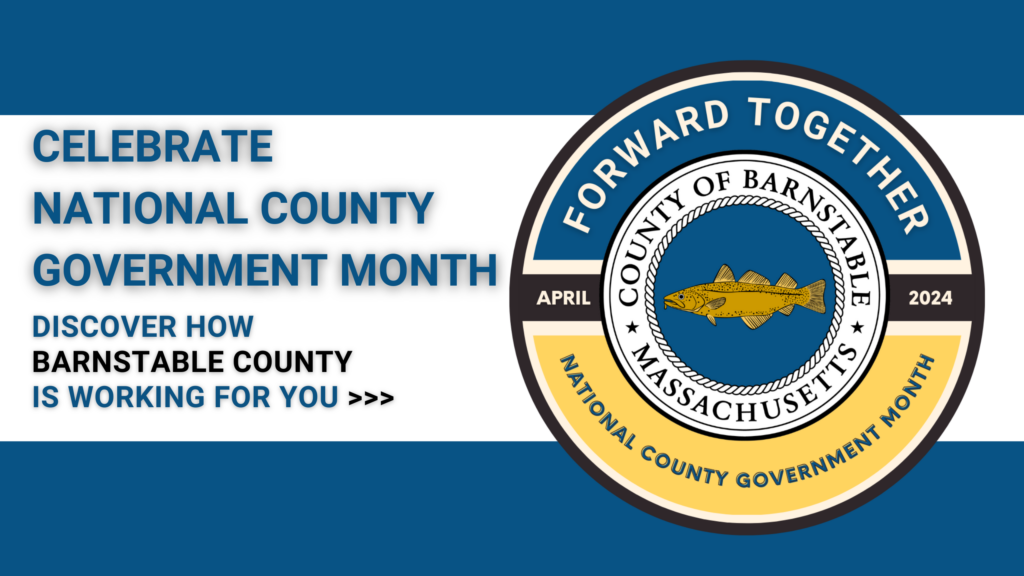
Heavy Rains on Tuesday could Impact Beach Water Quality throughout the Week of August 8th

On Tuesday, August 8th, between 11:00 AM and 1:00 PM, Cape Cod experienced severe weather including a tornado warning and torrential rain. In a small amount of time, several inches of water fell onto the roadways, into storm drains, and ultimately, into our waterbodies. What does this mean for beach water quality? Well, we’ll know for sure once bacterial testing results become available over the next few days. In the meantime, here are a few things to consider.
Typically, we see increased bacteria levels at the beaches after heavy rains. This isn’t unusual, in fact, it’s expected. The rain falls so quickly that it overwhelms stormwater systems that are meant to divert water into the ground, where it can undergo natural filtration by our sandy soils. Instead of going into the ground, contaminated water from our roofs, cars, sidewalks, garbage, etc. quickly finds its way via gravity into our swimming areas. In some cases, the dirty water is quickly swept away by currents and tides. In other cases, it can hang around for a few days, making water quality less than ideal for recreational use.
When in Doubt, Stay Out
Have you heard the adage “when in doubt, stay out?” Oftentimes, a quick visual assessment of how the water looks can tell you whether or not it’s a good idea to swim. If you can’t see your own feet in thigh deep water, that’s an indication the water quality may be less than ideal. This rule applies to ponds as well as the ocean. You might also notice a lot of suspended material in the water – seaweed, algae, fragments of leaves or other debris – this could mean that a fair amount of stormwater runoff drained into that water body leading to turbid water and, in some cases, high bacteria levels.
What Happens When People Swim in Contaminated Water?
Ingesting water contaminated by bacteria from stormwater runoff could cause gastrointestinal distress such as vomiting and/or diarrhea, skin rashes, and even ear, eye, nose, and throat infections. These symptoms can be more severe for some individuals than others. While it’s important for everyone to take care when swimming within 24 to 72 hours of a heavy rain event, children, older people, and those with a compromised immune system should be particularly cautious.
Water Quality Monitoring
Barnstable County’s Beach Monitoring Program samples and tests the water for bacteria levels at almost 400 beaches Cape-wide between Memorial Day and Labor Day. That said, it takes up to 24 hours to culture bacteria. A limitation of beach water monitoring everywhere is the inability to know bacteria levels in real time. While we will have a pretty good idea of how Tuesday’s rains will affect our beach water quality on Wednesday and Thursday, it’s good for people to take precautions ahead of time.
Keep checking our Beach Sampling Results Page at Beach Sample Results – Barnstable County (capecod.gov) for beach monitoring data, retesting information, and closures. Also, be on the lookout for signage at your favorite beaches, indicating water quality issues over the next few days.
For more information about Barnstable County’s Beach Monitoring Program, please visit our website at Bathing Beach Water Quality – Barnstable County (capecod.gov).



